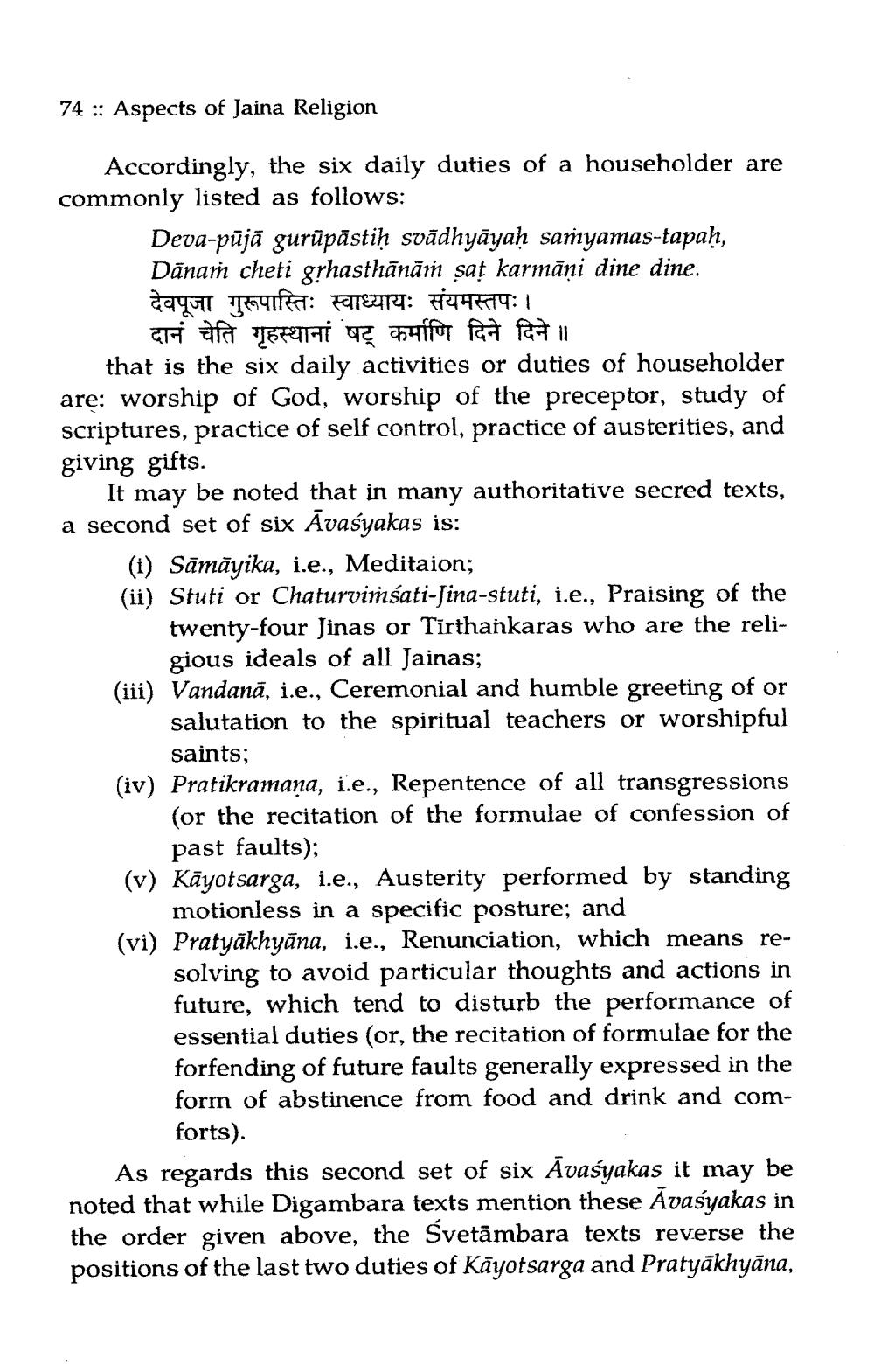________________
74 :: Aspects of Jaina Religion
Accordingly, the six daily duties of a householder are commonly listed as follows:
Deva-pūjā gurūpāstiḥ svādhyāyaḥ samyamas-tapaḥ, Dānaṁ cheti grhasthānām sat karmāni dine dine. देवपूजा गुरूपास्तिः स्वाध्यायः संयमस्तपः।
दानं चेति गृहस्थानां षट् कर्माणि दिने दिने । that is the six daily activities or duties of householder are: worship of God, worship of the preceptor, study of scriptures, practice of self control, practice of austerities, and giving gifts.
It may be noted that in many authoritative secred texts, a second set of six Āvaśyakas is:
(i) Sāmāyika, i.e., Meditaion; (ii) Stuti or Chaturvimśati-Jina-stuti, i.e., Praising of the
twenty-four Jinas or Tīrthankaras who are the reli
gious ideals of all Jainas; (iii) Vandanā, i.e., Ceremonial and humble greeting of or
salutation to the spiritual teachers or worshipful
saints; (iv) Pratikramana, i.e., Repentence of all transgressions
(or the recitation of the formulae of confession of
past faults); (v) Kāyotsarga, i.e., Austerity performed by standing
motionless in a specific posture; and Pratyakhyāna, i.e., Renunciation, which means resolving to avoid particular thoughts and actions in future, which tend to disturb the performance of essential duties (or, the recitation of formulae for the forfending of future faults generally expressed in the form of abstinence from food and drink and com
forts). As regards this second set of six Āvaśyakas it may be noted that while Digambara texts mention these Āvasyakas in the order given above, the Svetāmbara texts reverse the positions of the last two duties of Kāyotsarga and Pratyākhyāna,
(vi) Protuor




